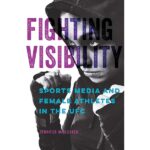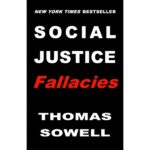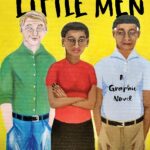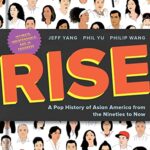
The Beautiful Game Enhances Its Beauty
This story reminds the reader of what is possible when groups of people who are separated by oceans, continents, and lived experiences share a love for the same sport.

This story reminds the reader of what is possible when groups of people who are separated by oceans, continents, and lived experiences share a love for the same sport.

All of the men profiled in Ron Cooper’s book have been trained to be Santa, have been taught how to talk to children, to put nervous children at ease, and to make misbehaving children less truculent. They have been taught how to deal with difficult or awkward requests or wishes. It takes some dedication to be Santa. Maybe we all need to take a bit of instruction at a Santa school.

McClearen argues that the marketing and branding success of the Ultimate Fighting Championship (UFC) was in great part made possible by sociocultural, technological, and political conditions that provided an ideal landscape for realizing success in building the promotion. Fighting Visibilityis McClearen’s assessment of these conditions, showing how the UFC aligned itself with dominant ideological messages and neoliberal logic, as well as movements of identity activism, to create a powerful sports business enterprise.

My Name is Barbra gives readers a peek into the multi-faceted world of this famous, yet quite private woman, along with glimpses of those in her orbit. If you can get past the length, lack of an index, and extensive back-patting, you will enjoy yourself and learn a great deal.

If Amiri Baraka was the godfather of the 1960s Black Arts Movement, Sowell is the godfather of Black conservatism. And Black conservatism is as important to African American Studies as the Black Arts Movement no matter how disagreeable many of us in the field may find many of Black conservatism’s assumptions to be.

France: An Adventure History remains, from cover to cover, a truly different history. It is long and densely packed with knowledge, just not told in a traditional narrative.

Big Man and the Little Men is less about the destination of the election result and more about the journey—what we can learn about people’s relationships, motivations, opinions, and beliefs.

Why We Love Baseball is an enjoyable book. It is well-written, tugging at the heartstrings one moment, being like Ripley’s Believe It or No” in another. There are lots of good portions here for St. Louis Cardinals fans, and aspects of the book could actually appeal to people who are indifferent to baseball. Still, this book is clearly for fans.

Birdgirl: Looking to the Skies in Search of a Better Future is inspiring for those looking to change the world, for those wanting an adventure story, and for those concerned about mental illness.

Perhaps, given our recent claim to greater visibility and the fact that RISE is arguably the first volume of its kind—especially as a “pop history of Asian America”—overzealous readers like myself may hastily expect it to be the Asian American story.